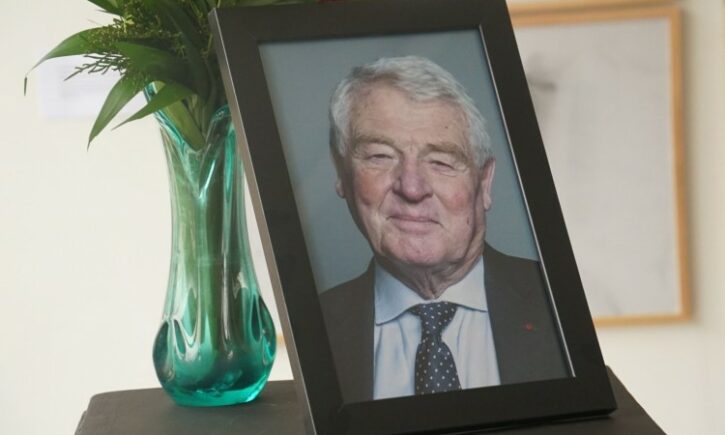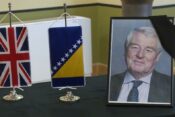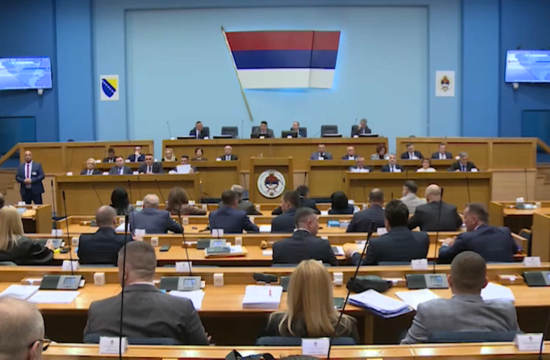
Lord Paddy Ashdown, who served as the international administrator in Bosnia and Herzegovina, loved the Bosnian people and promoted liberal values across Europe, said the speakers at a commemoration event for the late British diplomat, organised by the Liberal-Democratic Party (LDS) and the Liberal Forum on Monday in Sarajevo.
Ashdown served as High Representative in Bosnia and Herzegovina between 2002 and 2006 and was tasked with overseeing the civilian implementation of the 1995 Dayton Peace Agreement, which ended the Bosnian war.
He died on December 22 last year.
LDS leader Hasib Salkic spoke of Ashdown’s visits to Bosnia, which he said began “already at the start of the war.”
“The first address he would come to was the Liberal Party, where he would get very precise information on what is going on in this country in conversations with then-leader Rasim Kadic and the rest of us, although he was very precisely informed of the international character of the war in former Yugoslavia,” Salkic said.
Ashdown would talk to everyone, including politicians, regular people and military officials, he said, adding that the British diplomat also visited the wartime prison camps of Keraterm and Omarska.
“He was in a position where he would very precisely inform his government, as well as other states, exactly what the situation is like,” he added.
Ashdown did not only contribute to the implementation of the Dayton Agreement, but also to its improvement, said the leader of the Liberal Forum of Bosnia and Herzegovina, Danijal Hadzovic, explaining that the High Representative is the one who interprets the Agreement according to its Annexe 10.
Later, in 1997, the High Representative would be granted the ‘Bonn Powers’, which enabled the official to, among other things, implement laws, fire certain politicians, propose amendments to the Constitution.
“That is something Paddy Ashdown used extensively during his mandate and in less than four years he achieved the record in using Bonn Powers. In that sense, Paddy Ashdown imposed numerous reforms and laws which went toward strengthening Bosnia and Herzegovina, strengthening the state level and its competencies,” Hadzovic explained.
He added that Ashdown worked toward creating an atmosphere of cooperation in society and tolerance among politicians, strongly sanctioning all those politicians and policies which led the policies of the war during the 1990s and wanted to stop the reform processes in the country.
He said that Ashdown began “a very successful and fruitful reform process in Bosnia and Herzegovina.”
“That process has, however, remained unfinished and after Paddy Ashdown left Bosnia and Herzegovina, we got a new political trend, which is one of a dramatic decrease in the interest of the international community – most of all the western powers – in Bosnia and Herzegovina,” he said.
The head of the Liberal South East European Network, Roman Jakic, said Ashdown was a vocal advocate for liberal-democratic values across Europe.
According to Liberal Party vice-leader Zlatko Hurtic, Ashdown was, above all, a “big lover of Bosnia and Herzegovina.”
“The message from his wife Jane (Courtenay) is that she thanked us for keeping the memory of Paddy alive and for organising this gathering. She asked us to convey Paddy Ashdown’s wish, which he expressed in the final moments of his life, to the public – he wanted his tombstone not to mention any titles such as lord or baron, but only ‘Paddy, the High Representative in Bosnia and Herzegovina’,” Hurtic said.
“Today is our chance to thank him and say that we will remember him,” he added.





